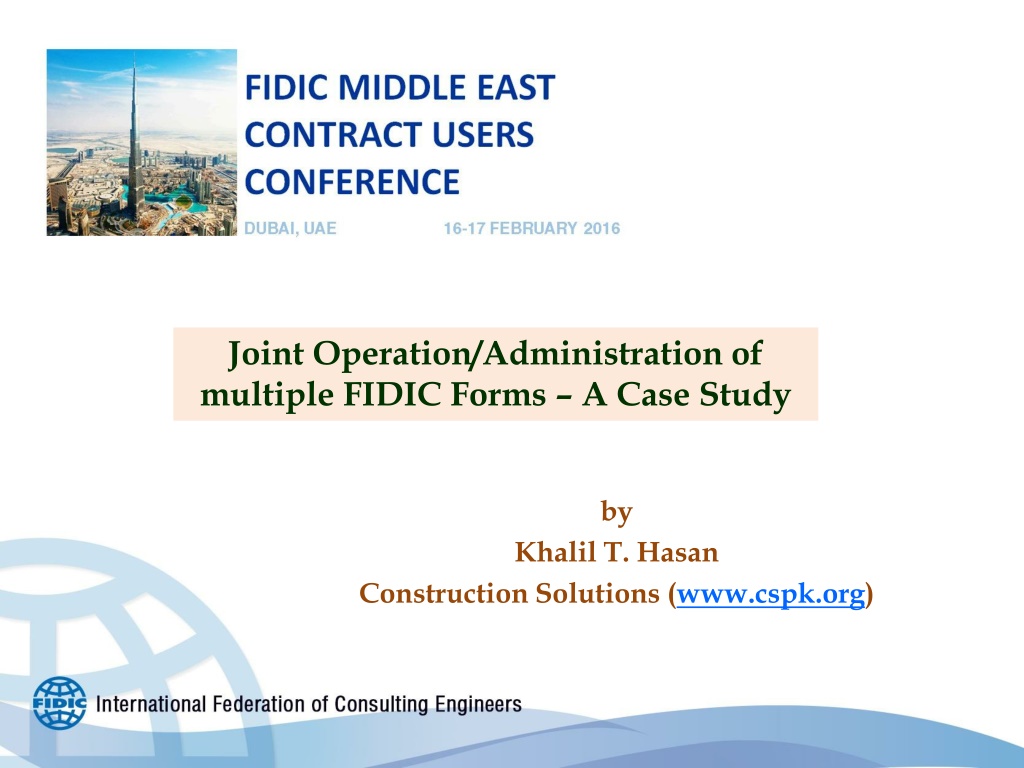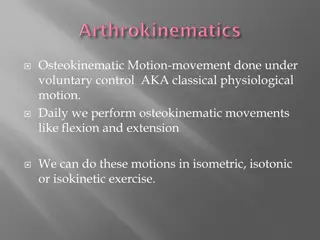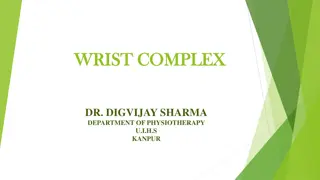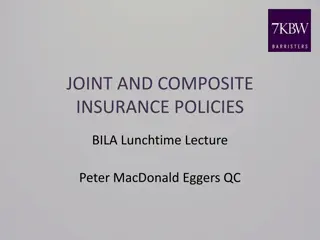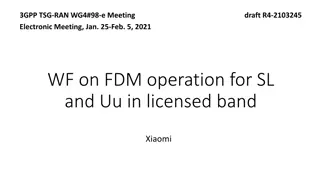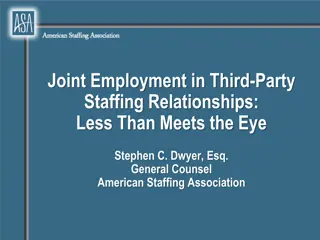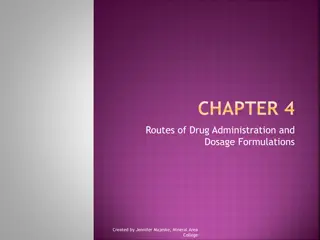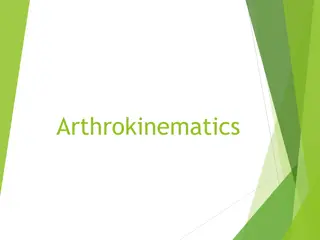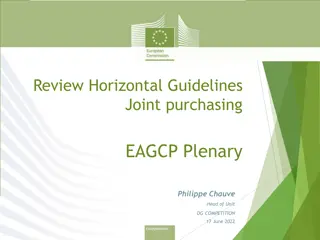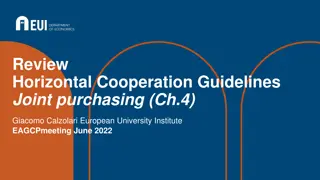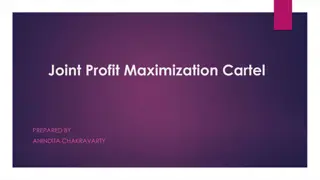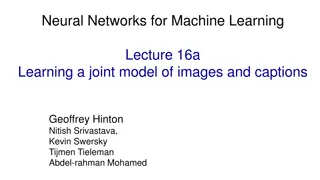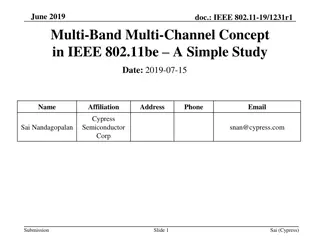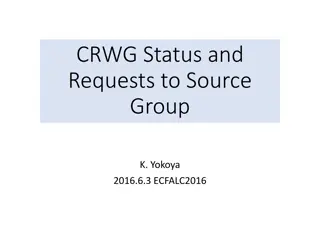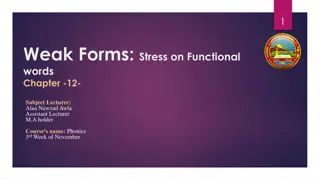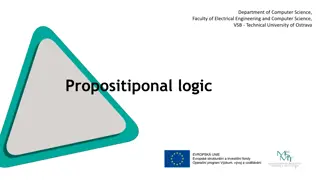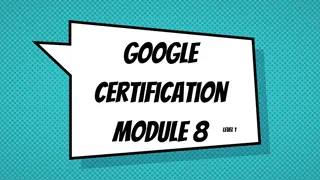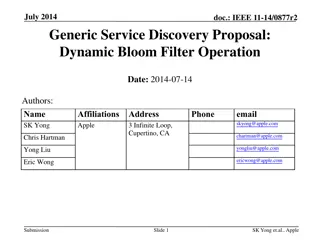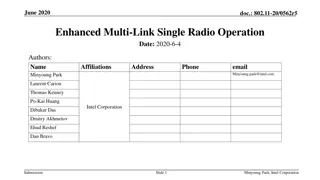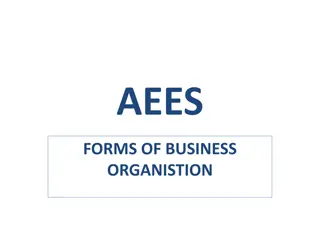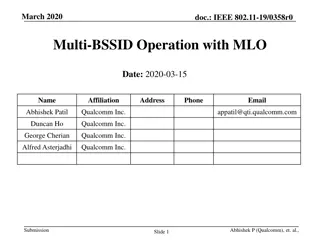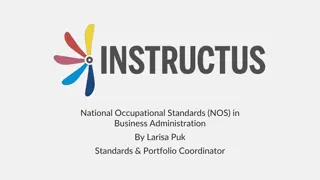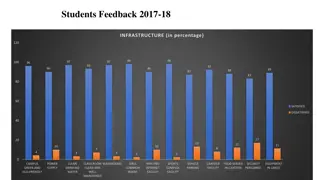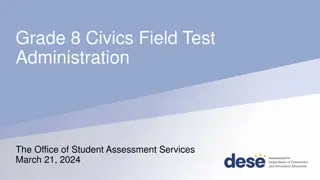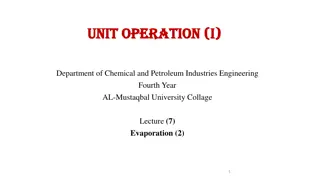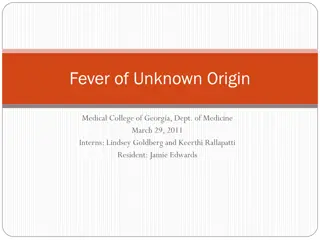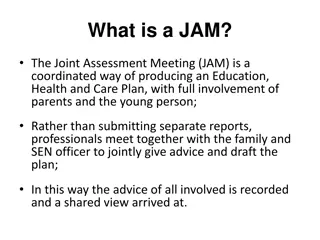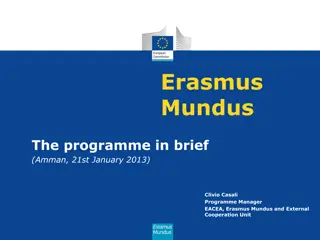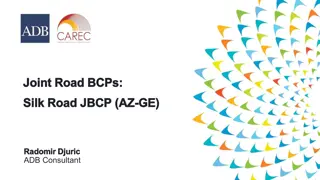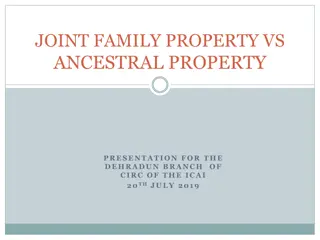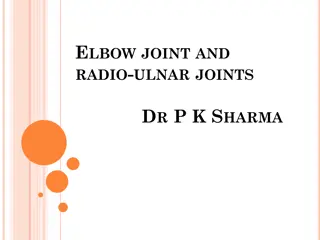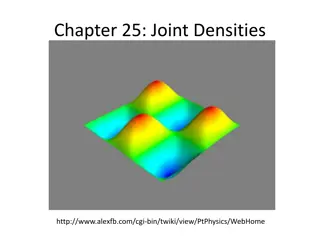Joint Operation and Administration of Multiple FIDIC Forms: A Case Study
This case study explores the joint operation and administration of FIDIC Red Book and Yellow Book forms in a Hydropower Project. It delves into the challenges faced by Civil Works and Electrical/Mechanical Works Contractors, their delays, disagreements, and proposed recovery plans, offering insights into contract management complexities.
Download Presentation

Please find below an Image/Link to download the presentation.
The content on the website is provided AS IS for your information and personal use only. It may not be sold, licensed, or shared on other websites without obtaining consent from the author. Download presentation by click this link. If you encounter any issues during the download, it is possible that the publisher has removed the file from their server.
E N D
Presentation Transcript
Joint Operation/Administration of multiple FIDIC Forms A Case Study by Khalil T. Hasan Construction Solutions (www.cspk.org)
While administration of any single FIDIC form of contract requires a dedicated discussion, this case study presents the joint and interrelated operation / administration of two different FIDIC forms; the Red Book and the Yellow Book. A short description of these forms in the context of this case study is; - Red Book: Construction of Works design by the Employer or build only contract forms. - Yellow Book: Construction of Works design by the Contractor or Design-Build contract forms.
This case study relates to a Hydropower Project involving construction of, amongst others, a Power House. The Power House construction was carried out jointly by two separate entities (contractors): Civil Works Contractor ( CIV ): Administered under the FIDIC Red Book (1999 edition), requiring construction of the civil works of the power house, which were designed by the Employer (or his personnel, namely, the Engineer) Electrical and Mechanical Works Contractor ( E&M ): Administered under the FIDIC Yellow Book (1999 edition) requiring design and construction of the electrical and mechanical works for the power house, such as, the generators and turbines required for power generation.
E&M was in delay in carrying out his obligations in respect of his contract Programme. Delay to some of the key obligations of E&M had a bearing on the works of CIV. Therefore, the Engineer issued several reminders and slow progress notices to E&M to ensure timely delivery and construction of some of the key elements of the Power House. Notwithstanding disagreement by the E&M, the Engineer and the Employer, after coordination with CIV proposed several alternative recovery plans. One of the recovery plans required the construction of certain temporary civil works for E&M, which were meant to help improve the progress of E&M and also CIV.
E&M was not required to undertake any civil construction under his contract and had no equipment, establishment or work force to execute such works. E&M was therefore instructed by the Engineer to arrange a 3rd party, at his own cost, to carry out the required additional temporary civil works. E&M, in principle, was in disagreement in respect of the scope of his obligations and did not agree that he was responsible for any delay to the CIV or his own works.
Implementation of the recovery plan was therefore itself subject to delay due to the refusal of E&M to undertake any additional measures, including the construction of additional temporary civil works. The Engineer, in order to make progress and to help alleviate the delays, instructed CIV to construct the required additional temporary civil works as part of the recovery plan. CIV, immediately and forthwith, undertook the additional temporary civil works so as to facilitate E&M to recover some of the accrued delay to the project.
On completion of the additional temporary civil works, E&M was instructed by the Engineer to proceed with the erection of the electrical and mechanical equipment with the aid of the temporary civil works. E&M, although still disputing any liability whatsoever in connection with the recovery plan, continued with his obligations and as a result, helped alleviate some of the accrued delay to project.
Meanwhile CIV presented a request for payment of circa 0.5m dollars, to the Engineer. This was for the additional services carried out in respect of the recovery plan. The Engineer agreed that CIV should be reimbursed for the additional services. Therefore in the first instance, instructed E&M to directly coordinate with CIV and to ensure that the matter was fairly resolved by way of payments made directly by E&M to CIV.
E&M refused to reimburse CIV for the additional temporary civil works. In view of the dispute on this matter, the Engineer took the following actions to ensure that the 0.5m dollars should be reimbursed to CIV from the account of E&M. It was important that the Engineer s actions were within the ambit of the provisions and procedures set out in the FIDIC Red and Yellow books and discussion on these matters forms the basis of this case study.
STEP 1 - RECOVERY OF 0.5M DOLLARS FROM E&M WITHIN THE AMBIT OF THE FIDIC YELLOW BOOK The Engineer in the first instance ruled out the possibility of a direct deduction from the progress payments which were due to E&M. This was in view that there was no provision within Sub-Clause 14.6 of the FIDIC Yellow Book (issue of an Interim Payment Certificate ( IPC ) by the Engineer), which give him the authority take this action. Therefore, pursuant to Sub-Clause 2.5 of the Yellow Book, E&M was given a notice of an Employer s Claim. As permitted by the mentioned provision, the notice was given by the Engineer on behalf of the Employer.
QUESTION NO. 1 The Engineer considered that he was not authorized to make a direct deduction of the amount in dispute from the IPC of E&M and that this required following the procedure for an Employer s Claim (pursuant to Sub- Clause 2.5 of the Yellow Book). Was the Engineer correct? (a) Yes (b) No (c) Direct deduction was permitted only if authorized by the Employer
The notice given by the Engineer advised E&M that the Employer considered himself to be entitled to recover 0.5m dollars for the temporary civil works carried out by CIV to facilitate E&M in carrying out his obligations. E&M was advised that the particulars related to this Employer s Claim would be submitted in due course by the Engineer or the Employer. In the meantime, E&M was given one more opportunity to directly reimburse the due amount to CIV.
QUESTION NO. 2 The Engineer is permitted to give a notice of an Employer s Claim, and related claim particulars, on behalf of the Employer? (a) Yes (b) No (c) Only after authorization given by the Employer
E&M did not react positively, and in fact, wrote back challenging the notice itself. The Engineer, therefore, after consultation with the Employer, submitted the Employer s claim particulars which provided a chronological justification of why the Employer was entitled to recover the sum of 0.5m dollars from E&M. All requisite procedural, contractual and substantive reasoning was set out in the claim particulars.
E&M was advised that the Employer had requested that an Engineers Determination, pursuant to Sub-Clause 3.5 of the FIDIC Yellow Book, should be carried out by the Engineer to close this matter. E&M was reminded of the provisions of Sub-Clause 3.5 of the FIDIC Yellow Book, which required, as a first step, to attempt to consult the claim particulars with E&M and aim to reach an agreement between the Parties. In the event that the Parties did not reach an agreement, the Engineer was obliged and authorized to issue a fair determination of the Employer s Claim. E&M was therefore permitted a few weeks and requested to revert back with his agreement in respect of the Employer s Claim.
E&M did not revert back positively within the next few weeks and therefore, the Engineer, after having completed his obligation to consult the claim particulars with both Parties, issued an Engineer s Determination ( ED ) pursuant to Sub-Clauses 2.5 and 3.5 of the FIDIC Yellow Book. The ED concluded that; E&M was liable for all costs (0.5m dollars) associated with the Employer s Claim; and Sub-Clause 3.5 required that both Parties give effect to the ED and E&M was requested to comply therewith.
E&M was once again permitted to directly coordinate the matter with CIV and to agree the terms in respect of payment of the claimed amount directly to CIV. Alternatively, if there was no confirmation received from CIV, within a reasonable period of time, that the amount had been settled, the Engineer will carry out a deduction of the due amount from the next IPC of E&M. E&M did not comply with the ED and therefore the Engineer, in the next IPC of E&M, deducted the 0.5m dollars.
QUESTION NO. 3 The Engineer, having given the notice of an Employer s Claim and the submission of the related claim particulars, both on behalf of the Employer, carries out an Engineer s Determination of the Employer s Claim which he has himself processed. Is this fair and reasonable and permitted under the Yellow Book? (a) Yes (b) No (c) Only after specific approval is given by the Employer
STEP 2 - REIMBURSEMENT OF 0.5M DOLLARS TO CIV WITHIN THE AMBIT OF THE FIDIC RED BOOK In the meantime, several months elapsed and CIV, after several reminders to the Engineer, gave a notice of claim pursuant to Sub- Clause 20.1 of the FIDIC Red Book. Following the notice of claim, CIV submitted the related claim particulars, also pursuant to the same provision of the FIDIC Red Book. The Engineer, following receipt of the claim particulars from CIV was obliged to carry out an assessment and to issue an Engineer s Determination ( ED ) related to the claim from CIV.
The Engineer, therefore, after consultation with the Employer, pursuant to Sub-Clauses 20.1 and 3.5 of the FIDIC Red Book, issued an ED, which concluded that; The Employer was liable for the reimbursement of the claimed amount to CIV, who was entitled to additional payment in the amount of 0.5m dollars; and CIV was advised to apply for payment of the determined amount in his next payment application; and The Engineer on receipt of the payment application, will certify the determined amount of 0.5m in the next IPC due under the CIV contract; and The Engineer concluded that after certification of the determined amount, the Employer will be discharged from all liability (past, present and future) in connection with the claim. The determined amount was then certified by the Engineer in the next IPC of CIV.
QUESTION NO. 4 Although it was, in principle, accepted by the Employer and the Engineer that the due amount should be reimbursed to CIV, but the Engineer considered he had no authority to directly certify this amount in the IPC of CIV without following the procedures set out in the contract, such as by way of the issue of a Variation Order or alternatively a Claim submission from CIV. Was the Engineer s understanding correct? (a) Yes (b) No (c) Was possible with a specific approval given by the Employer
Thank you for your attendance and contribution. FIDIC and Construction Solutions We wish you all Good Luck.
This Lecture was delivered by the Managing Partner of Construction Solutions (www.cspk.org), Mr. Khalil Tayab Hasan. For any queries and clarifications, please feel free to contact Mr. Hasan at; khalilhasan@cspk.org / khalilhasan@hotmail.com +971 50 8861709 / +974 30483280 / +92 345 8500195
